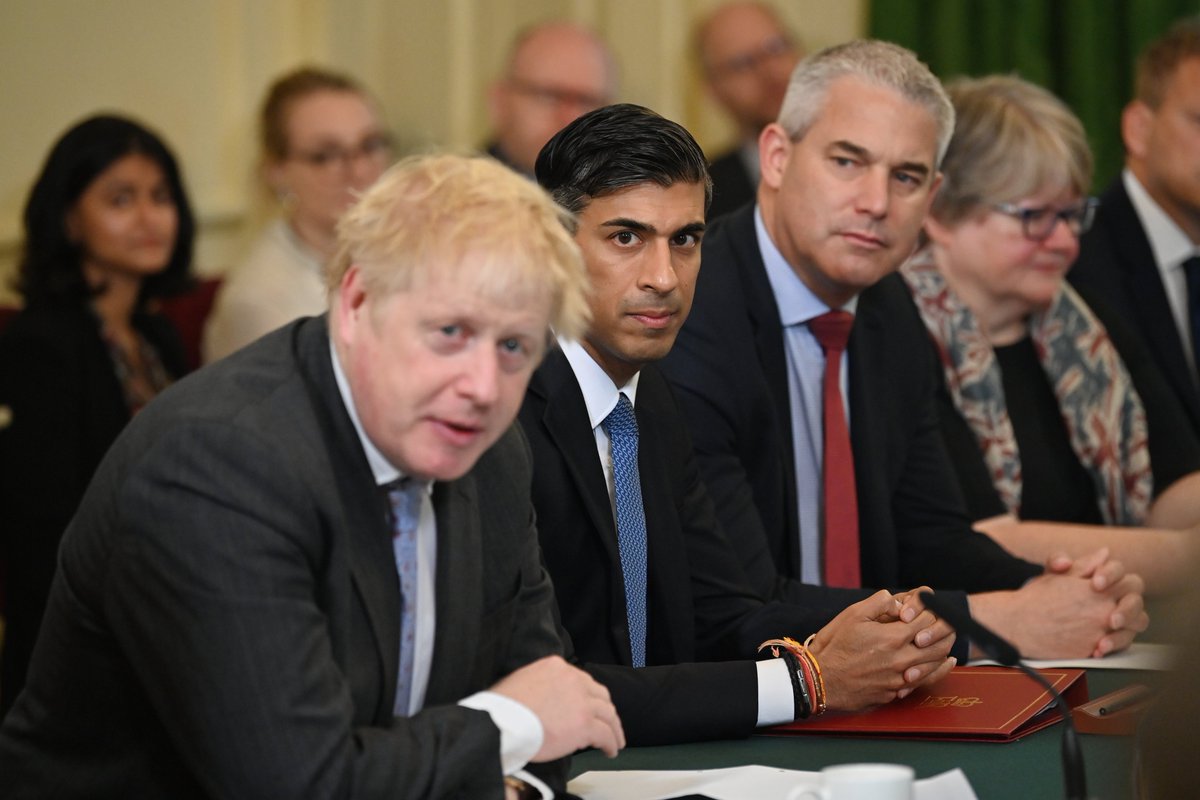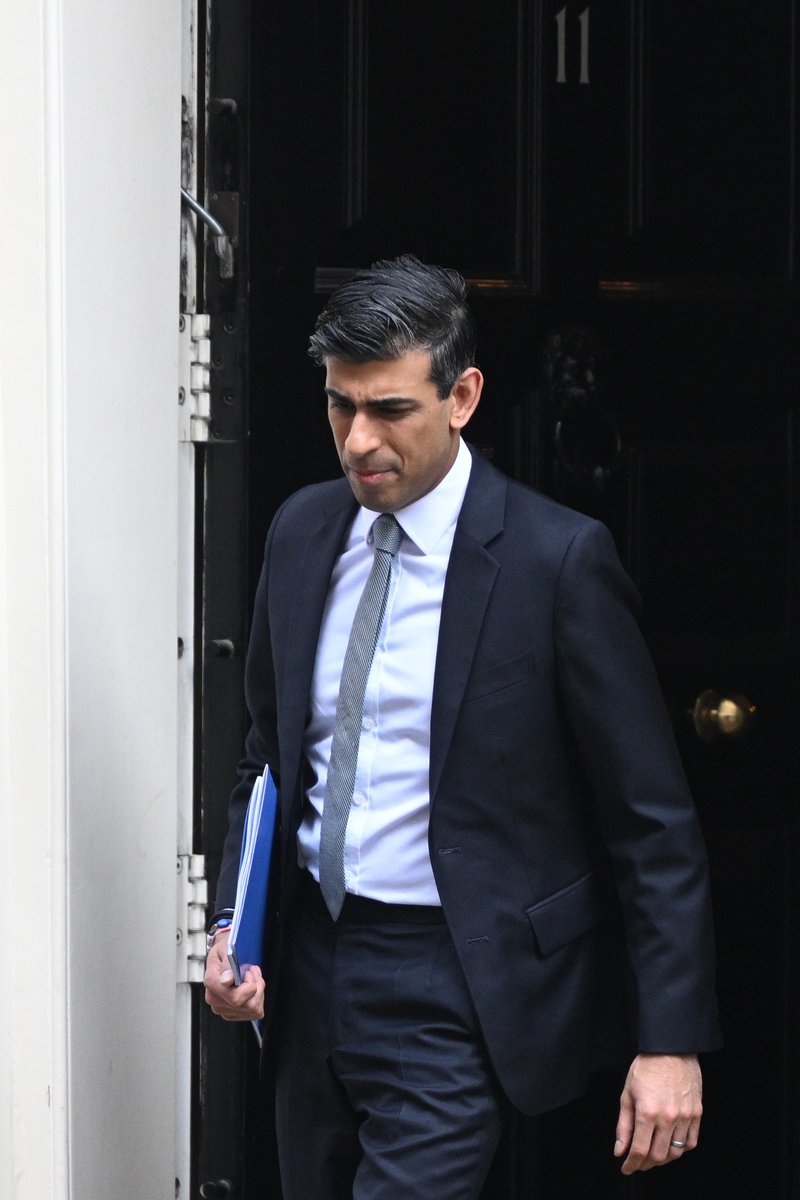
For much of his two-year run as Britain's Chancellor, Rishi Sunak has been a star.
Times have changed, writes @harrytlambert.
newstatesman.com/politics/conse…
Times have changed, writes @harrytlambert.
newstatesman.com/politics/conse…
In January, Rishi Sunak was the only popular politician in the UK, bucking the near-universal trend for a politician to become more widely disliked as they become better known. 

In early February, at the height of partygate, he appeared to hold Boris Johnson’s fate in his hands — and decided not to act. 

This week, however, after one of the most widely-panned budgetary statements since George Osborne’s “omnishambles” in 2012, Sunak’s star appears to have finally fallen. 

On Wednesday, the cosmetic tax cuts Sunak announced were duly cheered by the Tory benches.
That apparent success soon unravelled. The accompanying Office for Budget Responsibility report was damning.
That apparent success soon unravelled. The accompanying Office for Budget Responsibility report was damning.

Rishi Sunak’s Britain was, it wrote, heading for “the biggest fall in living standards since ONS records began in 1956”. 

Those on Universal Credit are losing 9 per cent of their income until benefits are increased in line with inflation later this year, pushing many into poverty. 

Grillings in the media by Sky and the Today programme, have exposed how unusual the pandemic had been for Sunak. 

The decisions he is making are tougher than during the pandemic — Rishi Sunak has to disappoint someone now. 

It is not clear, in any case, that the Chancellor has a clear and compelling vision for the type of state he wants to craft. 

By attempting to balance the books, fund the state and lower taxes when only two out of the three are possible Sunak risks satisfying no one. 

What Sunak lacks is clarity of mission. Read more about the Chancellor’s turbulent week here.
newstatesman.com/politics/conse…
newstatesman.com/politics/conse…
• • •
Missing some Tweet in this thread? You can try to
force a refresh











